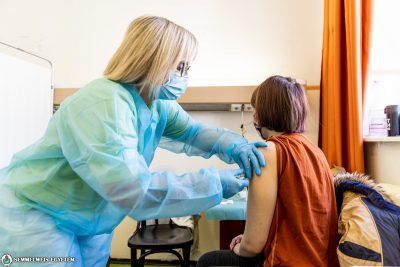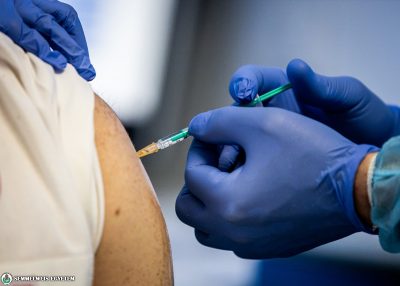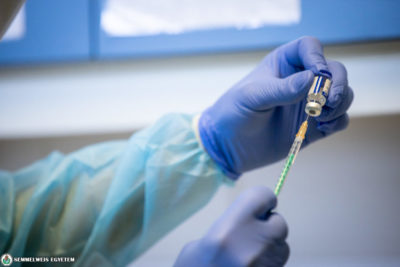Semmelweis University was among the first in the country where vaccinations against the coronavirus started on December 26, 2020. At first, the university handled the vaccination of workers at hospitals and other health care providers designated by the government, as well as those Semmelweis Citizens (health care workers, students) that were permitted by the National Public Health Center. The vaccination of residents and social workers of nursing homes and social institutions started on January 7, 2021, with Semmelweis University for the homes located in Budapest. On February 4, the vaccination of people referred by GPs started, beginning with the elderly, then followed by those with chronic diseases, while currently the university is giving jabs to teachers and pregnant mothers, who also enjoy priority in the vaccine program, said Dr. Attila Szabó, vice-rector for clinical affairs and the president of the Clinical Center. Moreover, the vaccination of people from the capital and the region who have a history of anaphylactic reactions also takes place at the university, which provides the necessary specialist intensive care expertise.
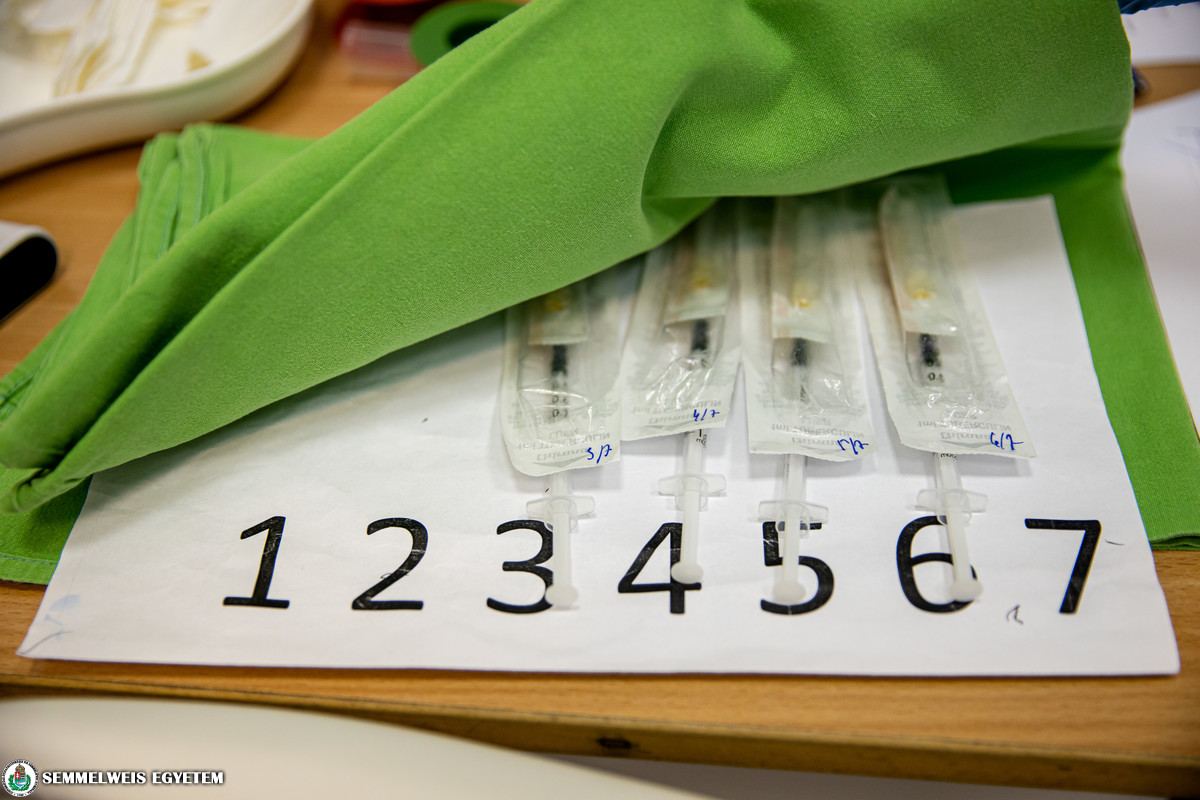
As of April 7, 2021, Semmelweis University staff have administered a total of 129,328 COVID-19 vaccines. Dr. Szabó noted that vaccination takes place at the university’s four vaccine sites, at more than 20 total individual stations, every day of the week, from morning till night. Around 40-50 university citizens participate in the work daily, including medical students, PhD students, health care professionals and specialist physicians, including on occasion university leaders. In the case of nursing homes, as many as 450 university works took part in administering vaccines over a weekend. The head of the Clinical Center pointed out that the work of those giving the jabs is supported by many administrative and technical workers, whose contribution is crucial, as the vaccine program requires significant organization and logistics.
All five coronavirus vaccines available in Hungary (Pfizer, Moderna, Sputnik V, AstraZeneca, Sinopharm) have been administered at the university, and there was not a single case of a serious reaction to the vaccine – said Dr. Attila Szabó.
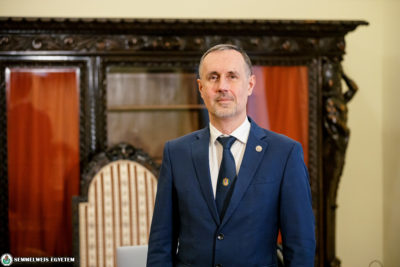 “University workers, in addition to operating Hungary’s largest COVID care facility, understand the importance of vaccines and sign up for the task from a wide range of our departments, thus continuously assuring that the required number of staff is available; we have not had to assign anyone for the task yet. Everyone sees that this is our weapon in the fight against COVID, and thus one of our most important tasks,” emphasized Dr. Szabó. He added that in his experience, those receiving the vaccines also feel this, as they have received many letters of gratitude, which are always forwarded to the addressed vaccine site. Dr. Álmos Gógl, a worker at the Directorate of Health Care Organization, has played an important role in the smooth organization of vaccines, being in charge of the three sites in Pest, while Dr. Gábor Fülöp is in charge of the sites at the Városmajor Heart and Vascular Center, providing guidance daily and overseeing that everything goes smoothly, he added.
“University workers, in addition to operating Hungary’s largest COVID care facility, understand the importance of vaccines and sign up for the task from a wide range of our departments, thus continuously assuring that the required number of staff is available; we have not had to assign anyone for the task yet. Everyone sees that this is our weapon in the fight against COVID, and thus one of our most important tasks,” emphasized Dr. Szabó. He added that in his experience, those receiving the vaccines also feel this, as they have received many letters of gratitude, which are always forwarded to the addressed vaccine site. Dr. Álmos Gógl, a worker at the Directorate of Health Care Organization, has played an important role in the smooth organization of vaccines, being in charge of the three sites in Pest, while Dr. Gábor Fülöp is in charge of the sites at the Városmajor Heart and Vascular Center, providing guidance daily and overseeing that everything goes smoothly, he added.
Vaccinations take place every day from 8 a.m. to 6-7 p.m. at the university vaccine sites, but for example during the campaign to vaccinate pregnant mothers during Easter, the last vaccine was administered at 9:30 p.m. on one day.
Dr. Attila Szabó also noted that virtually 100% of bedside workers at the university right now have either been vaccinated or are protected due to having had COVID, with a total of 13,161 Semmelweis citizens vaccinated. As a result, currently only 0.5% of health care workers are out due to positive PCR test results, with none of them being seriously ill.
Pálma Dobozi
Translation: Tamás Deme
Photo: Attila Kovács – Semmelweis University
